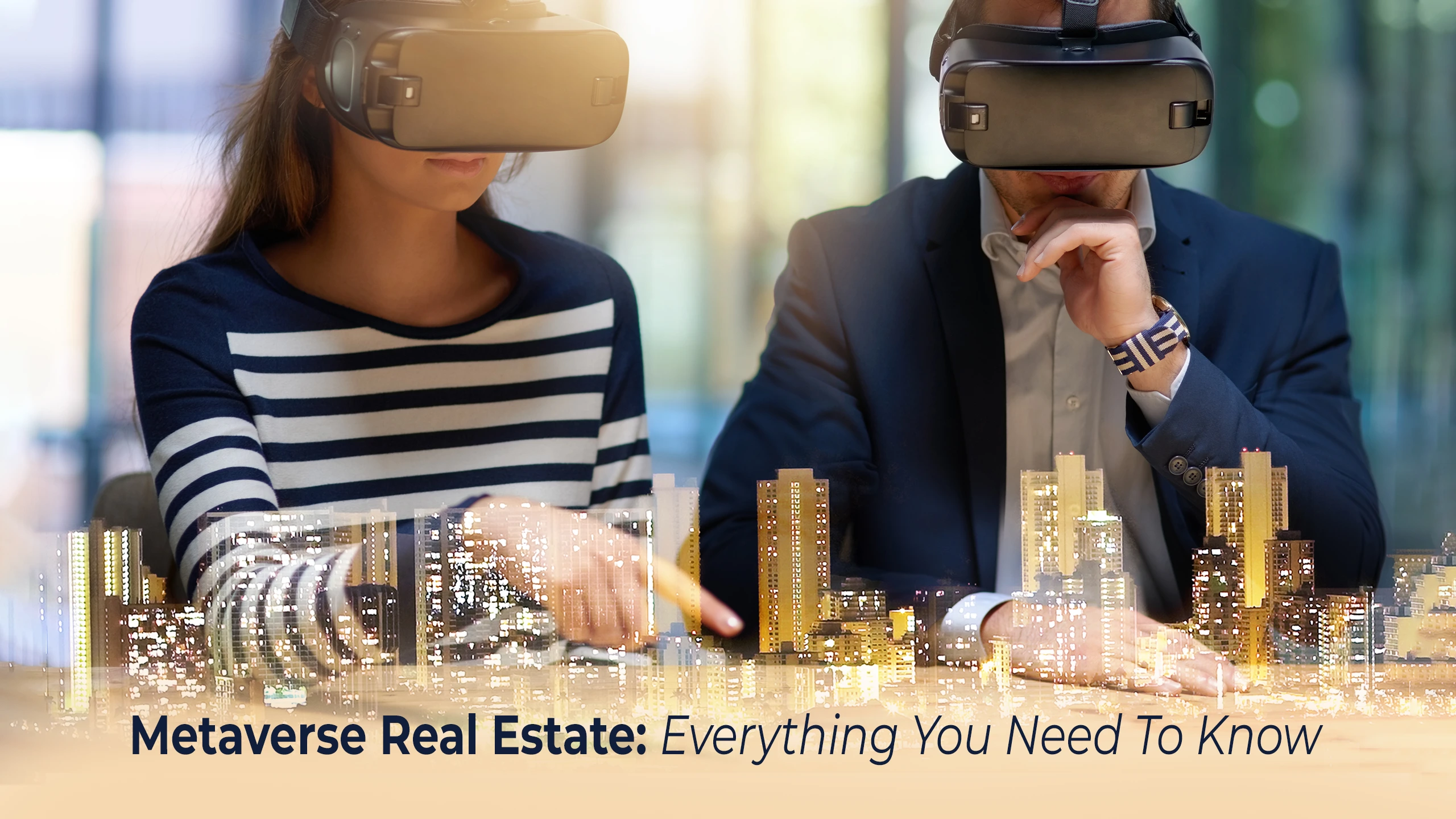The concept of the metaverse has gained significant attention in recent years, capturing the imaginations of individuals and businesses alike. It promises to revolutionize the way we interact with digital spaces, offering new opportunities in various fields. One such area that has garnered considerable interest is metaverse real estate. In this blog, we will delve into the world of metaverse real estate and explore its key aspects, potential benefits, and future implications.
What is Metaverse?
The metaverse can be described as an immersive digital universe, a collective virtual shared space that encompasses augmented reality (AR), virtual reality (VR), and other technologies. It is a convergence of the physical and digital realms, offering users the ability to engage with virtual environments, interact with others, and access a multitude of digital experiences.
Metaverse Real Estate: What Is It?
Metaverse real estate refers to the ownership, development, and trading of virtual properties within the metaverse. These virtual properties can take various forms, ranging from digital land parcels and buildings to virtual storefronts and entertainment venues. Just like physical real estate, metaverse real estate holds value and can be bought, sold, leased, or developed.
Ownership and NFTs
Non-fungible tokens (NFTs) play a crucial role in the realm of metaverse real estate. NFTs are unique digital assets that are secured by blockchain technology, providing verifiable proof of ownership and authenticity. Through NFTs, individuals can acquire virtual land or properties within the metaverse and have full control over their assets. The ownership of virtual real estate can grant various rights and opportunities, such as customization, monetization, and social interactions within the metaverse community.
Development and Virtual Architecture
Similar to physical real estate development, the metaverse offers opportunities for virtual architecture and construction. Developers can create and design virtual buildings, landscapes, and environments to enhance the metaverse experience. This includes designing virtual homes, commercial spaces, entertainment venues, and even entire virtual cities. Virtual architecture in the metaverse is not limited by physical constraints, allowing for innovative and imaginative creations.
Economic Opportunities and Monetization
Metaverse real estate opens up a wide range of economic opportunities and monetization avenues. Virtual property owners can monetize their assets through various means, such as hosting events, offering virtual services, selling virtual goods, or renting out spaces for other users to utilize. As the metaverse evolves, it is expected to create a thriving virtual economy, with businesses and individuals engaging in trade, commerce, and entrepreneurship within the digital realm.
Social and Cultural Impact
The metaverse has the potential to revolutionize social interactions, bridging gaps between geographically dispersed individuals and communities. Within the metaverse, people can connect, communicate, and collaborate in ways that were previously unimaginable. Virtual real estate can serve as a gathering place for socializing, attending virtual events, or participating in shared experiences. Moreover, the metaverse can also provide opportunities for cultural preservation and expression, allowing communities to showcase their traditions, arts, and heritage in virtual spaces.
Challenges and Considerations
While the metaverse real estate holds immense promise, it is essential to consider the challenges and potential risks associated with this emerging field. Some of the key considerations include issues of digital property rights, privacy and security concerns, scalability and infrastructure requirements, and ensuring inclusivity and accessibility for all users.
The Future of Metaverse Real Estate
As technology continues to advance, the metaverse is poised to become an integral part of our digital lives. Metaverse real estate will likely witness significant growth and evolution, with more individuals, businesses, and even governments investing in virtual properties and exploring the possibilities it offers. The metaverse has the potential to redefine how we interact with digital, create new economic opportunities, and reshape various industries.
Conclusion
Metaverse real estate represents a fascinating and rapidly expanding domain within the metaverse. It brings together the concepts of ownership, development, and economic activity within virtual spaces, offering individuals and businesses a unique platform for engagement and exploration. As the metaverse continues to evolve, it will be fascinating to see how metaverse real estate shapes the future of digital interactions and experiences.
Disclaimer: The term “metaverse” and its specific implications may continue to evolve over time, and the concepts discussed in this blog are based on the understanding as of the publication date.




